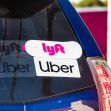Male ride-share drivers have filed class-action lawsuits against Uber and Lyft in California, alleging that the companies’ new ride-matching features, which allow riders to request female drivers, unlawfully discriminate based on gender.
According to the complaints filed in California state court, the plaintiffs argue that the programs limit their income and job opportunities by allowing riders to exclude male drivers. They also claim the features reinforce stereotypes, suggesting men are inherently more dangerous than women. The lawsuits accuse both companies of violating the state’s Unruh Civil Rights Act, which prohibits businesses from discriminating based on sex and other protected traits.
Under the Unruh Act, businesses open to the public must provide their goods and services equally, without bias toward any group. The law allows individuals to seek up to $4,000 in damages per violation, which could amount to significant collective penalties if the cases are certified as class actions. A class action allows a group of people with similar claims to sue together, making it easier to pursue relief for widespread alleged harm.
The lawsuits were filed soon after Uber launched a new option allowing women and nonbinary drivers and passengers to be matched only with other women. The company said the program, introduced in July in San Francisco, Los Angeles, and Detroit, was developed after widespread rider and driver safety complaints. Lyft’s “Women+ Connect” feature, introduced in 2023, offers similar same-gender matching for women and nonbinary users.
According to court filings, the plaintiffs argue that safety measures should not come at the expense of equal opportunity. They claim that by allowing riders to exclude male drivers, the companies have created an unequal system that violates state anti-discrimination laws.
Uber and Lyft have cited safety data to defend the initiatives. Uber’s most recent U.S. Safety Report documented more than 2,700 reports of serious sexual misconduct between 2021 and 2022, with 92 percent of those accused identified as drivers and 89 percent of survivors identified as women. Lyft reported more than 4,000 assaults between 2017 and 2019. Both companies say these figures underscore the need for safety options for women and nonbinary users.
Some riders support the option, saying it helps them feel more secure during trips. One frequent user told reporters she prefers women drivers because it reduces anxiety when traveling alone at night.
The complaints argue that creating gender-based categories within the apps violates equal access protections under state law. California courts have consistently held that businesses offering public services cannot treat individuals differently based on gender, even when policies are designed for safety reasons. The cases are expected to test the boundaries between workplace safety initiatives and civil rights protections in the gig economy.
Liability in this context refers to a company’s potential legal responsibility for harm caused by its policies or the lack of adequate safeguards. In July, U.S. District Judge Charles Breyer, who has presided over more than 2,000 sexual assault and harassment lawsuits against Uber, noted that the company’s earlier lack of gender-matching options could expose it to claims of negligence. Those cases involve allegations from passengers who say the company failed to protect them from assaults by drivers. The new discrimination suits take a different approach, arguing that the measures Uber and Lyft later introduced to address those safety risks may now violate state civil rights law.
Court filings in several jurisdictions show that Uber and Lyft continue to face litigation over passenger safety, employment classification, and consumer protection. The new gender discrimination suits in California expand that legal portfolio by focusing on how the companies’ ride-matching features interact with state civil rights protections.






